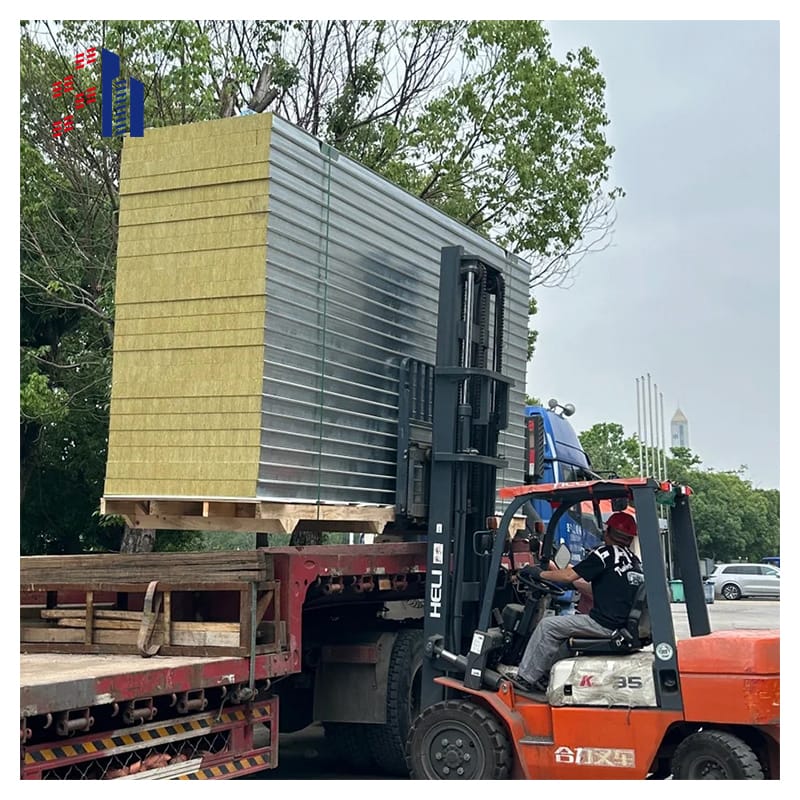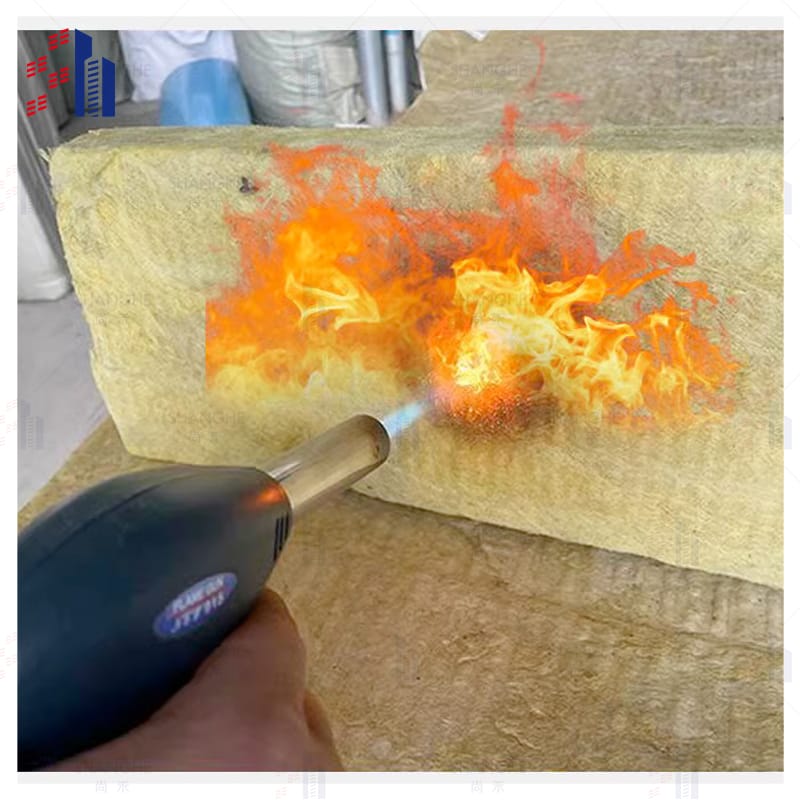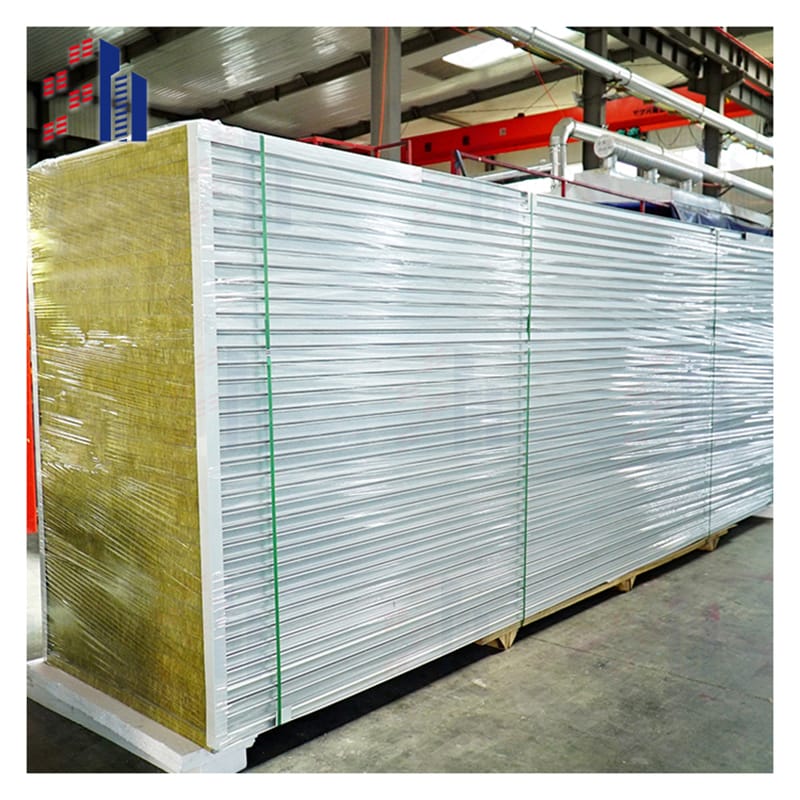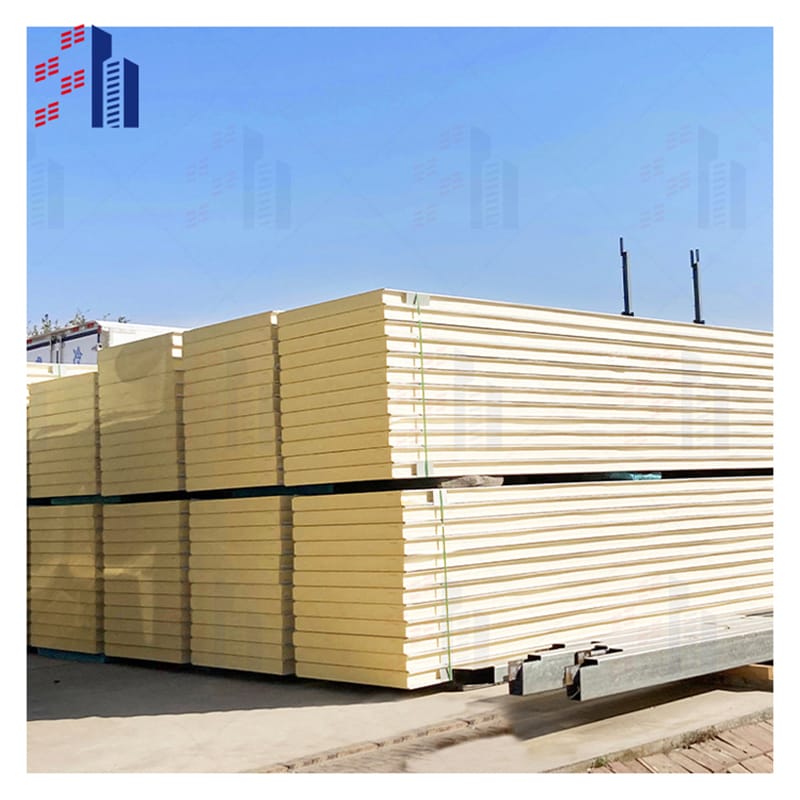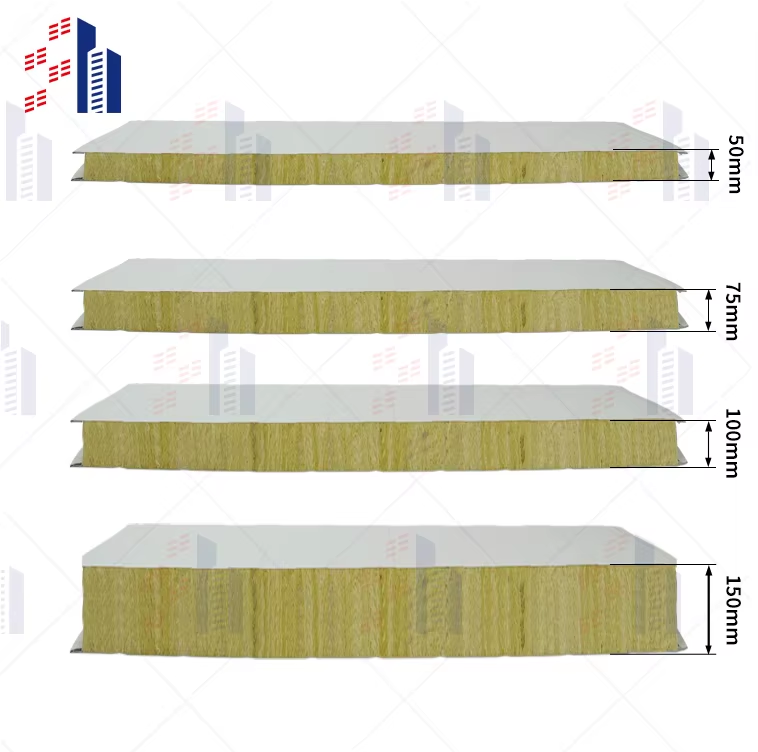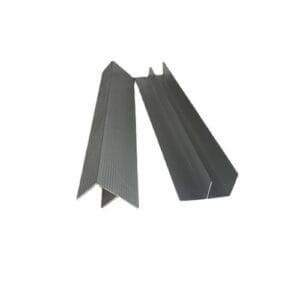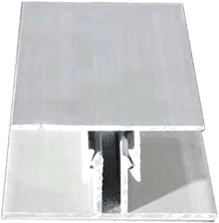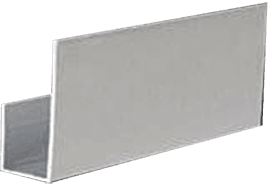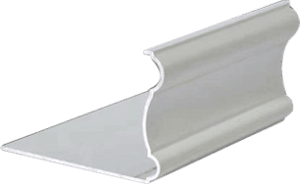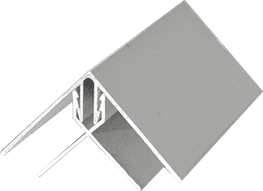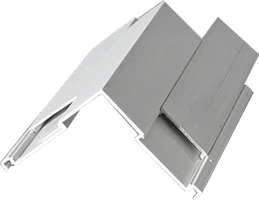Why Metal Insulated Sandwich Panels Are the Future of Energy-Efficient Construction – Backed by Industry Leaders
If you’re looking for a durable, energy-efficient, and cost-effective building solution, metal insulated sandwich panel are the answer. Used by top firms like Kingspan and Metecno, these panels are revolutionizing construction with their superior thermal performance and structural strength. Even government projects, like the LEED-certified Bullitt Center in Seattle, rely on them for sustainable building.




Customers visit the factory





Installation details
Key Specifications
| Parameter | Details | Why It Matters |
| Core Material | PIR / Mineral Wool / EPS | PIR: Best insulation (=0.022 W/mK). Mineral Wool: Fireproof (1000C). EPS: Budget-friendly. |
| Thickness | 50mm, 80mm, 100mm, 150mm (custom 30-200mm) | Thicker = better insulation (e.g., 100mm for cold storage). |
| Fire Rating | A1 (Non-combustible) / B1 (Self-extinguishing) | |
| Panel Width | 1150mm (standard), 950-1200mm (custom) | Fits global steel framing (e.g., 24″ OC studs). |
| Facing Material | 0.4-0.7mm Galvalume Steel or Aluminum | 0.5mm+ recommended for high-wind zones. |
| Surface Coating | PVDF (Kynar 500庐), PE, or SMP | PVDF resists UV, chemicals (ideal for Florida/Dubai). |
| R-Value | PIR: R-6.5 per inch / Mineral Wool: R-4.5 | Higher R-value = lower HVAC costs. |
| Load Capacity | Up to 150 kPa (21 psi) | Handles roof snow loads (e.g., Canada, Norway). |
| Custom Colors | 200+ RAL/Pantone options | Match corporate branding (e.g., Walmart blue). |
Important attributes |
| design | the present age | After-sales service | Online Technical Support, Other |
| Origin | Shandong, China | Application Scenarios | Warehouse |
| Brand | SH | Warranty Service | polyurethane |
| Panel Material | polyurethane | Models | SH 150mm |
| Usage | Exterior Decoration | Product Name | Diy Foam Sandwich Panels |
| Surface Material | Metallic | Minimum Order | Personalization |
| Thickness | 16MM/20MM/25MM | Color | Bright red, vermillion, lime, sky blue, aquamarine, pea green or customized |
| Width | 100mm,120mm,150mm,200mm | | |
What makes these panels so special? Well, they combine two metal sheets with a rigid insulating core—usually PIR, PUR, or mineral wool—creating a lightweight yet incredibly strong system. Major manufacturers, including ArcelorMittal, hold patents for advanced fire-resistant variants, making them a trusted choice for commercial and industrial buildings. Plus, with rising energy costs, their insulation properties can cut HVAC expenses by up to 40%, as proven in a 2023 study by the U.S. Department of Energy.
So, if you’re tired of dealing with traditional construction’s inefficiencies, metal insulated sandwich panel offer a smarter, faster, and greener alternative.
Metal Insulated Sandwich Panels The 1 Choice for Modern Building Envelopes
When it comes to modern construction, metal insulated sandwich panel dominate the market—and for good reason. Companies like Tata Steel and Isopan swear by them for their unmatched durability and thermal efficiency. Even Harvard’s Innovation Lab used them in their latest eco-friendly expansion!
These panels work by sandwiching high-performance insulation between two metal facings, creating a barrier against heat, cold, and noise. Unlike traditional materials, they install in half the time, saving labor costs. A 2022 report from McKinsey highlighted how warehouses using these panels reduced energy consumption by 35%. Plus, with fire-resistant cores meeting ASTM E84 standards, they’re approved for use in high-risk facilities.
Bottom line? If you want a building that’s energy-efficient, quick to install, and built to last, metal insulated sandwich panels are the way to go.
Metal Insulated Sandwich Panel Roof Systems Cut Energy Bills by 30% (Proven by DOE Studies)
Tired of skyrocketing cooling costs? Metal insulated sandwich panel roof systems are the solution—endorsed by the U.S. Department of Energy (DOE) for slashing energy use. Amazon’s latest fulfillment centers use them to maintain stable temperatures while cutting HVAC loads.
These roofs feature a foam core (PIR/PUR) between steel or aluminum sheets, reflecting heat and keeping interiors comfortable. A 2021 MIT study found buildings with these systems required 30% less energy for climate control. And since they’re prefabricated, installation is lightning-fast—no more months of delays like with traditional roofing.
Forget old-school asphalt or single-ply membranes. If you want a roof that’s energy-efficient, low-maintenance, and backed by hard data, metal insulated sandwich panel roof systems are unbeatable.
Metal Insulated Sandwich Panel Cladding Fireproof & Weather-Resistant (Used in Dubai’s Skyscrapers)
When extreme weather or fire safety is a concern, metal insulated sandwich panel cladding is the top pick. Dubai’s Burj Khalifa precinct uses them for their unmatched resistance to heat and storms. Even NASA’s facilities opt for these panels due to their non-combustible mineral wool cores.
Unlike flammable composites (remember Grenfell Tower?), these cladding panels meet EN 13501-1 fire ratings. They also withstand hurricanes—Miami’s hurricane-prone high-rises install them for added protection. And with powder-coated finishes, they stay rust-free for decades.
So, if you need cladding that’s safe, durable, and trusted by the world’s most demanding projects, metal insulated sandwich panel cladding is the only logical choice.
Metal Insulated Sandwich Wall Panels Speed Up Construction by 50% (Approved by Skanska)
Construction delays cost money—but metal insulated sandwich wall panels cut project timelines in half. Global giant Skanska used them to complete a Walmart distribution center 8 weeks ahead of schedule. Even IKEA’s modular factories rely on these panels for rapid assembly.
How? These walls arrive pre-engineered, so no on-site cutting or framing is needed. They’re also load-bearing, eliminating the need for additional structural support. A 2023 Dodge Data report showed that projects using these panels saved 22% on labor costs.
In short, if you’re battling deadlines and budget overruns, metal insulated sandwich wall panels deliver faster, cheaper, and stronger results.
Metal Insulated Sandwich Roof Panels vs. Traditional Roofing Why 80% of Factories Switch
Let’s face it—traditional roofing is slow, expensive, and inefficient. That’s why metal insulated sandwich roof panels are taking over. Tesla’s Gigafactory switched to them for their instant insulation and leak-proof design. The U.S. Green Building Council also promotes them for LEED credits.
These panels combine weatherproof metal with foam insulation in one unit, unlike conventional roofs that need separate layers. A case study from Ford’s Michigan plant showed a 25% reduction in energy costs after switching. Plus, their 40-year lifespan beats asphalt roofs (which last just 15-20 years).
If you’re done with constant repairs and high energy bills, metal insulated sandwich roof panels are the upgrade you need.
Megger Test for Metal Sandwich Panels How to Avoid Costly Electrical Failures (3M & Siemens Approved)
Worried about hidden electrical flaws in your panels? A Megger test is your best defense. Companies like Siemens and 3M require it for all their insulated panel installations to prevent short circuits and fire hazards.
This test uses high-voltage resistance checks to spot moisture or insulation breakdowns—common issues in poorly installed panels. The NFPA 70E standard mandates it for industrial buildings. A 2022 UL study found that 60% of panel failures could’ve been avoided with routine Megger testing.
Don’t gamble with safety. If you use metal insulated sandwich panels, a Megger test is a non-negotiable step.
Panel Integrity Checks How Often Should You Inspect Metal Sandwich Panels? (Boeing’s Maintenance Protocol)
Ignoring panel maintenance can lead to disasters—just ask Boeing, who inspects their aircraft hangar panels quarterly. For metal insulated sandwich panels, regular checks prevent insulation gaps, corrosion, and structural weakening.
Start with visual inspections for dents or sealant cracks. Then, use thermal imaging (like FedEx’s warehouses do) to detect hidden heat leaks. The FM Global guidelines recommend professional assessments every 2 years.

